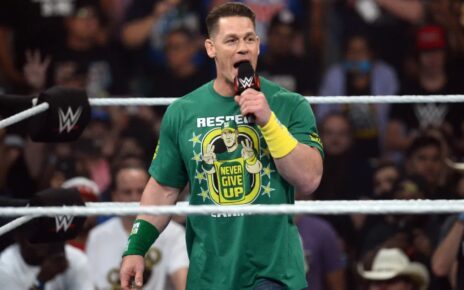 The NFL’s officiating woes have once again taken center stage as coaches and executives voice their frustration over a system they believe is broken and lacking a clear path to redemption. The recent controversy surrounding the Detroit Lions-Dallas Cowboys game has only intensified the scrutiny, leaving football enthusiasts and insiders alike questioning the league’s commitment to accountability and improvement.
The NFL’s officiating woes have once again taken center stage as coaches and executives voice their frustration over a system they believe is broken and lacking a clear path to redemption. The recent controversy surrounding the Detroit Lions-Dallas Cowboys game has only intensified the scrutiny, leaving football enthusiasts and insiders alike questioning the league’s commitment to accountability and improvement.
In a perplexing 106-second video attempting to clarify league rules on reporting a change of position, a robotic voice outlined procedures while showcasing clips from the controversial game. However, the response from club facilities across the nation was less than enthusiastic, with one NFC assistant coach dismissing it as “cover-your-ass” and another executive from an NFC team labeling it as “just gaslighting everybody in the NFL.”
The frustration stems not only from the interpretation of rules but also from what many perceive as a lack of transparency and accountability in the league’s approach to officiating. The sentiment among NFL coaches and executives, as shared with Yahoo Sports, is a unanimous belief that officiating is on a downward trajectory, with consistency and accuracy taking a hit.
Troy Vincent, NFL executive vice president of football operations, attempted to address concerns during league meetings in December, acknowledging the inherent challenge of pleasing both winning and losing teams. However, the overwhelming sentiment among NFC and AFC coaches and executives is that officiating is not improving and may be getting worse.
One NFC assistant coach expressed concern over the disparity in knowledge between teams and officials, stating, “The teams and the broadcasters know so much more than the actual officials. That’s what’s scary.” The increasing complexity of the rulebook, coupled with the evolving strategies employed by teams, has put officials in a challenging position, trying to navigate a game that is becoming more intricate and nuanced.
The controversy surrounding the Detroit Lions’ creative attempt to deceive the Dallas Cowboys by sending multiple players to an official, resulting in miscommunication, highlights the tension between team gamesmanship and officials’ rule enforcement. The evolving landscape of the game, including increased deception and gamesmanship, poses additional challenges for officials striving to maintain control and fairness.
While recent data analysis suggests some improvement in officiating crews’ consistency, accuracy appears to be declining. The question of whether officiating would be done the same way, if the game were played with today’s views and technology, lingers, with coaches and executives questioning the reluctance to embrace change.
The call for change, however, faces significant roadblocks, primarily NFL intransigence and team owners’ unwillingness to invest more funding into officiating. The lack of resources allocated to officiating, coupled with the reluctance to make it a full-time job, raises concerns about the league’s commitment to real improvement. The departure of experienced league officials to network roles further exacerbates the issue, leaving a void of seasoned professionals.
As the NFL grapples with officiating controversies, the demand for transparency, accountability, and a proactive approach to improvement grows louder. The league must confront the dual challenges of outdated practices and the reluctance of team owners to invest in a vital aspect of the game. Until a genuine commitment to change emerges, the NFL officiating system remains in a state of disarray, leaving fans and insiders alike questioning the integrity and fairness of the game they love.



